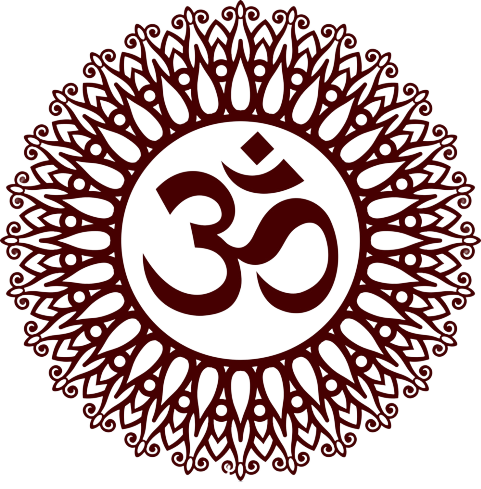
Veda
‘Veda’ is a treasure house of knowledge. It is an instrument of knowledge. Such an instrument of knowledge is called ‘Pramana’. Veda has come through the tradition of the student (‘Sishya’) learning by listening to the teacher (‘Guru’). Hence, Veda is called ‘Sabda pramana’ (sound based instrument of knowledge). Our eyes function as instruments to show the colour of an object. In the same manner, the ‘Veda’ functions as an instrument of knowledge. Whenever an equipment is purchased a ‘User’s Manual’ is given, to explain the proper use of that item. Similarly God, the Creator of this world, has given us the knowledge as to how the world should be utilised. ‘Veda’ is the manual that contains such a knowledge.
Knowledge given by ‘Veda’
‘Veda’ gives us the knowledge about the goals of human life. It also gives us the knowledge about the ‘Sadhanas’ (practices) that should be undertaken to attain those goals. ‘Veda’ expounds the knowledge about two themes.
1. ‘Dharma’ (Righteous conduct),
2. ‘Para Brahman’ (Ultimate Reality or God)
‘Dharma’ relates to righteous human behaviour, and is the ethics. Under the topic of ‘Dharma’, topics such as good conduct, good character, and proper attitude are discussed. The word ‘Para Brahman’ means that entity which is supreme and ever-present. ‘Veda’ expounds the knowledge about ‘Para Brahman’, which is the indestructible substratum for this destructible and transient world.
What is Veda Chanting?
The Veda is called ‘Sruthi’ or that which is heard. Without being recorded in writing, the Veda-saakhaas have been passed from generation to generation, in the ancient method of learning, by word of mouth to listening and repeating, in the Guru-Sishya (Paaddasaala, master-disciple) tradition. One main reason for not learning from the written text is that several sounds do not lend themselves to be accurately reproduced phonetically. They fall in between two syllables and can be transmitted only orally.
Without resort to writing, our seers have devised many ways to prevent even a very small error to creep into the Veda-saakhaas. Neuroscience shows how rigorous memorising can help the brain. The term the ‘Sanskrit Effect’ was coined by neuroscientist James Hartzell. Even introducing small amounts of chanting and recitation could have an amazing effect on all of our brains.
Lokah Samastah Sukhino Bhavantu
May all beings everywhere be happy and free, and may the thoughts, words, and actions of my own life contribute in some way to that happiness and to that freedom for all.
